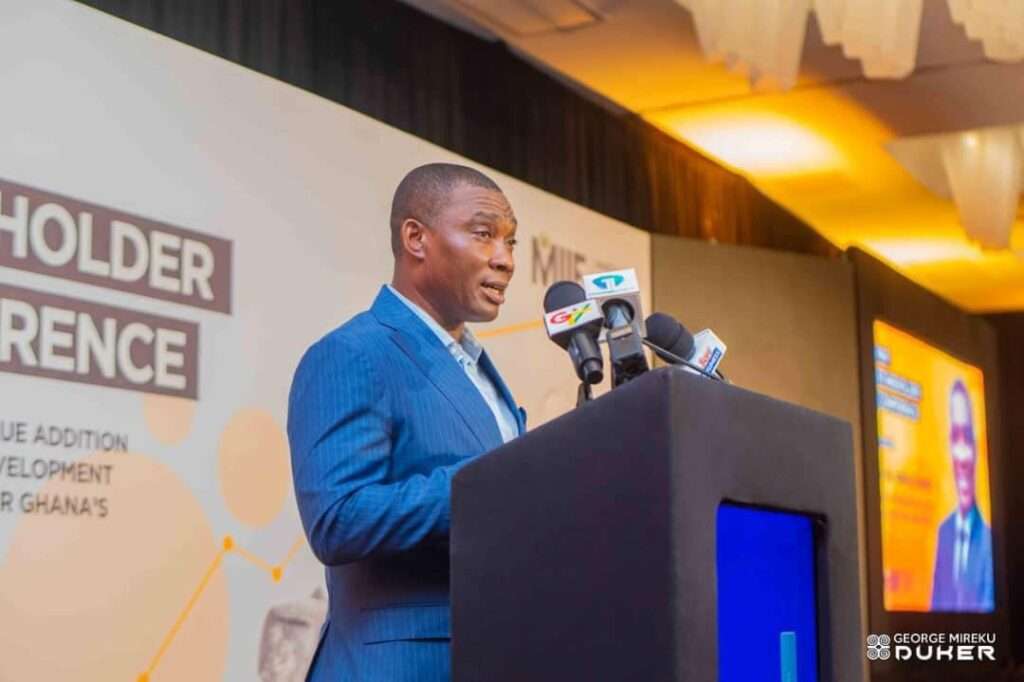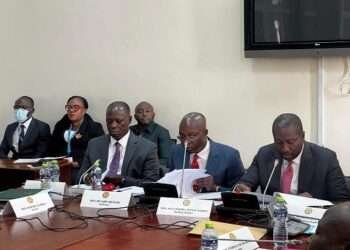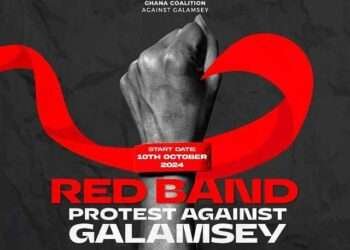Ghana, Africa’s second-largest gold producer, is grappling with an escalating crisis of gold smuggling that threatens to undermine the country’s economic gains and international reputation. The gravity of this situation demands immediate action, especially in light of the country’s potential to maximize revenue from its mineral resources.
In a bid to address the alarming issue of gold smuggling and illegal mineral exportation, the deputy minister, for Lands and Natural Resources, Hon. George Mireku Duker, MP, has tasked relevant agencies and ministries to develop a comprehensive tracking system aimed at curbing this illicit activity.
“The trend where a chunk of the country’s precious minerals leaves the shores of the country unchecked affects the economy and hence cannot be allowed to fester,” Hon. Duker said, underscoring the urgency of the situation.
Hon. Duker, who previously served as the Board Chairman of Minerals Income Investment Fund (MIIF), made this call during the Second MIIF Stakeholders’ Forum held in Accra. In his remarks, he emphasized the critical need for a coordinated response to stem the illicit flow of Ghana’s mineral wealth beyond its borders, which poses a significant threat to the nation’s economy.
Gold smuggling is a pressing issue that is estimated to cost Ghana approximately US$2 billion annually in lost tax revenue. In 2022, about 60 tonnes of gold were reportedly smuggled out of the country, further exacerbating the problem.
This illegal activity not only deprives the state of vital revenue but also fuels the rise of illegal mining, known locally as “galamsey,” which has devastating consequences for the environment and local communities.
In his speech, Hon. Duker called on MIIF to prioritize working with the National Security Ministry, Lands Ministry, and Finance Ministry to develop a sophisticated tracking system for mineral exports.
This system, he argued, would play a vital role in curbing smuggling and improving oversight of the mining sector. The minister emphasized the importance of building a framework that prevents precious resources from leaving the country illegally, thereby ensuring that the government and citizens benefit from their mineral wealth.
Hon. Duker’s directive aligns with a broader government effort to reform and sanitize Ghana’s mining sector, which has long struggled with regulatory challenges. Enhanced collaboration between MIIF and other government bodies is expected to strengthen Ghana’s fight against the illicit transportation of minerals and improve the management of the country’s natural resources.
Steps Toward Value Addition

In addition to combating smuggling, Hon. Duker highlighted the need for value addition within Ghana’s mining industry. He stressed that value addition is the “missing link” that prevents resource-rich countries like Ghana from fully benefiting from their natural resources.
“The absence of or limited access to technology in most of the mineral-rich countries has meant that the minerals are only exploited and exported to other jurisdictions which are more technologically endowed and therefore have a comparative advantage in that respect.”
Hon. George Mireku Duker, Deputy Minister, for Lands and Natural Resources
Hon. Duker pointed out that a shift towards value addition would ensure that Ghana maximizes its mineral resources, thereby contributing to national development.
Ghana is already making significant strides toward achieving value addition in its mining industry. Among the initiatives Hon. Duker mentioned are the establishment of statutory bodies such as the Ghana Integrated Aluminium Development Corporation (GIADEC) and the Ghana Integrated Iron and Steel Development Corporation (GIISDEC).
These agencies aim to facilitate the integrated development of key value chains for bauxite, alumina, aluminium, and iron and steel, positioning Ghana as a regional hub for mineral processing.
In addition, Hon. Duker highlighted the Royal Gold Ghana Refinery, a facility in which Ghana holds a 20 percent stake. This refinery will allow Ghana to process its gold ore before export, adding value to the raw mineral and retaining more revenue within the country.
Furthermore, Hon. Duker encouraged MIIF to collaborate with the Ghana Geological Survey Authority to establish a mineral exploration fund. This initiative, he explained, would help accelerate the development of Ghana’s mining communities and foster the growth of downstream value-addition industries.
By promoting the development of these industries, Ghana can move beyond its colonial legacy of merely exporting raw materials and instead take a more proactive approach to its mineral resources.
Hon. George Mireku Duker’s call for stronger collaboration between MIIF and key government ministries reflects the government’s determination to curb the smuggling of precious minerals, protect state revenue, and leverage the country’s mineral wealth for sustainable development.
READ ALSO: Scholz Vows Continued Military Support For Israel





















